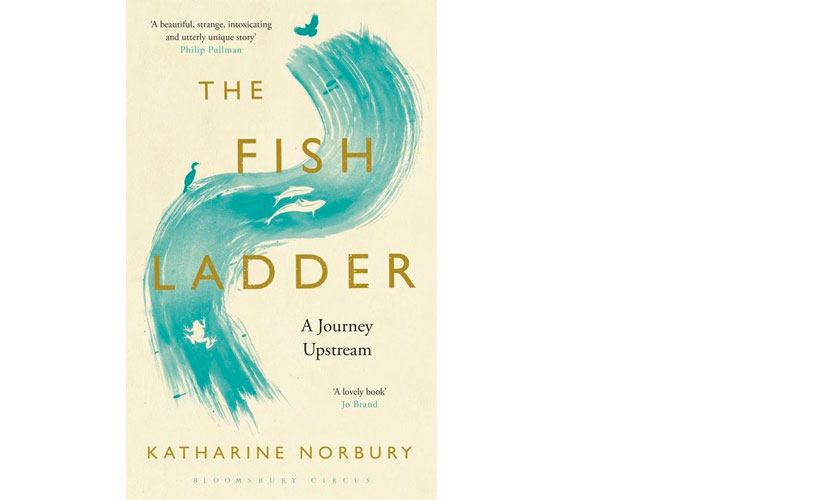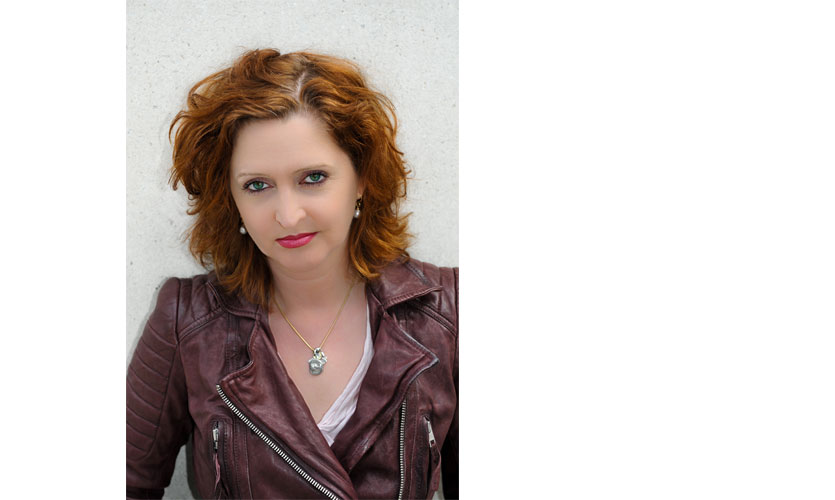Film editor and scriptwriter, Katharine Norbury has worked extensively in film and television drama and while working in the film industry, she wrote her first book, ‘The Fish Ladder'. The book was long-listed for the Guardian First Book Award and was awarded Telegraph's Best Book of the Year in 2015. She was also chosen as the Rising Star in non-fiction by the Observer in 2015.
1. You’ve been in the film industry for over 20 years. What drew you to film?
- I've always loved cinema. Growing up in the semi-rural North of England, there wasn't a lot for a young person to do and the cinema provided a vital, secular "first step" away from home. I read Jean-Paul Sartre as a teenager and was drawn to his idea that film provided a contingency, or a safe space, from the volatile and unpredictable "real world". You could rely on a film; it was the same every time you saw it. Even so, it didn't occur to me that people actually made movies until I met a film crew on a beach in Portugal, just after leaving university. I got a job as a runner and then later as a trainee assistant film editor with the BBC. The cutting room remains, to this day, for me, the place where dreams are woven.
2. From film to writing; what was the transition like?
- It was an organic process. When film editing "went digital" it broke my heart. The light-filled cutting room that I knew and loved was replaced with a dark and airless editing suite. The most difficult transition was from post to pre-production, in that it required luck and someone prepared to take a chance on me. Film could be quite mono-track when it came to career development. I became a script editor and learned the craft of the writer by working very closely with the Liverpool playwright and screenwriter Alan Bleasdale, who literally dictated his scripts to me. After that, it was a very natural next step to start writing my own work.
3. Your first book is titled ‘The Fish Ladder’. What’s the story behind the name?
- The fish ladder of the title is in the village of Pitlochry in Scotland. I was driving to the Dunbeath river in Caithness in order to follow it, on foot, from the sea to its source. I stopped in Pitlochry to stretch my legs, but also because I had seen the fish ladder marked on the map. I was intrigued by the juxtaposition of these two words and curious about what they described. One of the book’s themes is the notion of finding a human solution to an often human-created problem. The Pitlochry fish ladder is a marvellous work of civil and hydro-engineering designed to facilitate the upstream journey of salmon around the obstacle of a hydro-electric power station and dam. The Fish Ladder is also, arguably, a late addition to a mystical Christian literary tradition which includes such work such as John Bunyan’s The Pilgrim’s Progress. Both “fish” and “ladder” have an iconographic significance within that tradition and although I don’t expand on it, within the book, the reference and the connection is there for those who wish to look for it.

4. The Fish Ladder, is deeply personal. Was it difficult to write?
- When I first began writing The Fish Ladder it was an account of one long summer, spent on a beach in North Wales, with my young daughter, Evie. We swam, caught mackerel, learned to sail, went for long walks, lit fires, cooked, read Swallows and Amazons together. However, during the course of the writing (after completing the third draft) I was diagnosed with cancer. I had always known that I was adopted but had never been particularly curious about my physical origins. However, the cancer raised all sorts of questions about genetic history that might well have affected my daughter. So what had begun as a metaphorical meditation on origins, on the idea of walking a river from sea to source, became a concrete search for a family, for the source of my own existence. The first part was easy to write, full of sunlight and human fellowship. The second part of the book was much more difficult – not least because it was unexpected as well as being deeply personal.
5. The book is a work of autobiography and deals with a lot of issues and emotions you’ve had to deal with. Was writing the book cathartic?
- I wouldn’t say that writing The Fish Ladder was cathartic. On the contrary, it was, at times, very difficult. If it put anything into perspective it was the sheer normalcy and variety of human experience. Laughter is normal. So too is suffering. Kindness and selfishness can both appear in unexpected places and in equal measure. I have probably become more observant as a result of writing the book and I have certainly developed a very real awareness of the transience, strength and beauty of life.
6. We hear that The Fish Ladder is being developed into a feature film and that you are writing the screenplay. Congratulations! How do you feel about watching something so personal to you on TV?
- Well, film development can be a lengthy process, although if there are any financiers or business angels out there, feel free to get in touch! I think that the process of writing, both in the first instance – the work of prose, and then the adaptation itself – means that the artist rather than the “I” character takes over. I do tend to refer to the characters in the 3rd person: “the Kate character”, “the Evie character”, “the husband character”. I also write with particular actors in mind – simply as a way of imagining what might be possible – so it already feels quite removed from my own experience. But, as I say, it’s at a very early stage. Ask me again a year from now!
7. What are your favourite comfort books that you would read anytime, anywhere, any number of times?
- The book that is always at my bedside is The Odyssey of Homer in translation by Richmond Lattimore. I've no idea how accurate the translation is but the poetry is sublime. After my father died I found I couldn't bear the rawness of fiction, and it was months before I could read anything at all. But then I saw this edition of The Odyssey in a bookshop and it has been my constant companion ever since. I love the way whole mysteries and adventures are packed into a handful of lines. I adore its economy and lightness of touch while addressing the biggest questions of existence. When my mother was in a coma after suffering a heart attack that left her without oxygen for six minutes I read Charlotte Bronte's Jane Eyre to her. On the first night, the comatose man next to her woke up and asked what I was reading. On the second day, Mum herself woke up and asked for tea and toast. Jane Eyre is, quite literally, a miraculous novel and I never tire of reading it. I especially love the passage where Jane frightens Rochester's horse and he accuses her of being a fairy. Lastly, Rupert Thomson's Dreams of Leaving. Having graduated in English Literature and History of Art I realised I had never read a book by a living English writer. I bought Dreams of Leaving because there was no writing on the front cover, not even the title of the book. Reader, I married him.
8. You are currently working on a second non-fiction about the idea of home. Can you give us a little sneak peek into the idea behind it all?
- I started writing a book about the travelling English circus. I spend a lot of time in the Llyn Peninsula in North Wales, where The Fish Ladder is set, and I was writing about John Lawson’s circus as they travelled through the peninsula each summer. But then one year they just stopped coming. So I waited a bit and then decided to follow the old pilgrim route 135 miles from the Welsh island of Ynys Enlli - the tip of the Llyn Peninsula back to the village where I grew up in the North of England. So it’s a meditation on community, on a life lived on the road, and on the idea of home – I say idea, because the village that I set out for has long ago been incorporated into the development of a new town, built to re-house the inhabitants of the city of Liverpool when their own homes were demolished. It’s also a book about transience, about coming from “somewhere else”, and about the new ties and new paths thus formed.
The Fairway Galle Literary Festival (FGLF) returns for its ninth year at the Galle Fort from the 24th – 28th of January 2018.


0 Comments